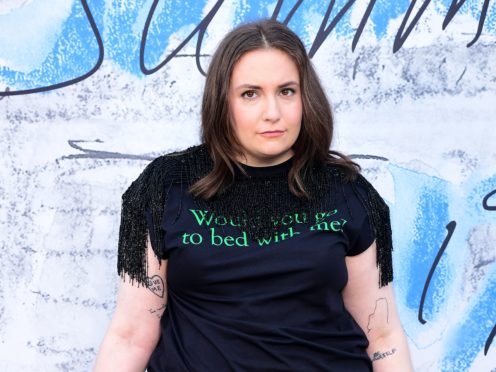Lena Dunham has opened up on her fertility struggles and her unsuccessful attempts to conceive through IVF.
The writer and actress, 34, had a hysterectomy three years ago due to endometriosis and said she had been exploring adoption before a doctor told her she “might have a chance of harvesting eggs”.
However, in an emotional essay in Harper’s magazine, Dunham revealed she was told in May “none of my eggs were viable”.
She said she received a phone call from a doctor during a bank holiday and realised it was not good news.
Dunham, known for creating and starring in hit drama Girls, said: “When he spoke my name with that sympathetic downturn, the apologetic-doctor voice I have come to know so well, my face crumpled in apprehension.”
The doctor told her: “We were unable to fertilise any of the eggs. As you know, we had six. Five did not take. The one that did seems to have chromosomal issues and ultimately . . . ”
Dunham added: “He trailed off as I tried to picture it—the dark room, the glowing dish, the sperm meeting my dusty eggs so violently that they combusted. It was hard to understand that they were gone.
“That it wasn’t like trying to meet a friend for coffee on a weekend and missing your window, rescheduling for the next. It really wasn’t like that at all.

“’You’re such a nice lady,’ Dr Coperman said. The word ‘lady’ revolted me. I’m not a lady, I wanted to shout. I’m just a little girl dreaming of my very own baby. What about that don’t you understand?”
Writing on Instagram, Dunham said her experience with IVF was “wrapped up in self-hatred, addiction and fear of the unknown”, adding: “Who was I if not a mother?”
Explaining why she wrote the essay, Dunham, who split from musician Jack Antonoff in 2017, said: “I wrote this piece for the many women who have been failed by both medical science and their own biology, but who have been further failed by society’s inability to imagine another role for them.
“I also wrote this for the people who dismissed their pain. And I wrote this for the strangers online – some of whom I communicated with, most of whom I did not – who showed me, over and over again, that I was far from alone.”
She said she hopes the piece “starts a few conversations, asks more questions than it answers and reminds us that there are so many ways to be a mother, and even more ways to be a woman”.
